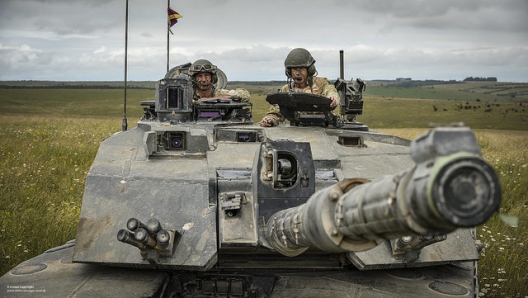 Europeans have been slow to recognise the world as it is rather than as they imagined. The reaction to Russia’s march into Ukraine has made this painfully obvious. The reflex has been to seek to defuse the crisis. On one level this is admirable – war did not solve much in Iraq and Afghanistan. The snag is that ceding ground to Mr Putin does not amount to de-escalation. To the contrary, weakness stokes the Russian president’s expansionism.
Europeans have been slow to recognise the world as it is rather than as they imagined. The reaction to Russia’s march into Ukraine has made this painfully obvious. The reflex has been to seek to defuse the crisis. On one level this is admirable – war did not solve much in Iraq and Afghanistan. The snag is that ceding ground to Mr Putin does not amount to de-escalation. To the contrary, weakness stokes the Russian president’s expansionism.
The west’s priority – and the downing by Russian-backed insurgents of Malaysia Airlines flight MH17 provides an opportunity – should be to recover the concept of deterrence. Not the nuclear deterrence of mutually assured destruction but the traditional understanding that political resolve and a readiness to deploy force can apply a brake. The mistake many Europeans have made – and, to a lesser degree, Barack Obama’s White House has done the same – is to confuse deterrence with escalation. I cannot count the times I have heard politicians and policy makers say they must tread carefully for fear of provoking Mr Putin. . . .
To be effective, deterrence has above all to be credible. The potential adversary has to believe that aggression will provoke proportionate retaliation, whether economic or, as a last resort, military. The sanctions imposed on Moscow by the EU have been anything but credible. Washington has gone further, but not far enough to signal serious intent. What Mr Putin has seen of a divided west tells him it is bluffing. He will take sanctions seriously when he sees that those threatening them are ready to bear the costs. . . .
The big danger, though, lies in the credibility deficit. Seen from Moscow, Nato looks like two-tier alliance. No one doubts its resolve to defend, say, Germany, but does the Article 5 guarantee of collective security apply equally to the states that joined after the collapse of communism? Would the US – or Britain, France, or Italy – really resist if Mr Putin turned his attention to “protecting” the Russian-speaking people of the Baltics? If the answer is no, the alliance is worthless.
The best way to make sure the commitment is never tested is to make it credible. That can be done by stationing sufficient “tripwire” forces in the east to persuade Mr Putin that a robust response to aggression would be unavoidable. . . .
Europeans cannot forever be reluctant partners in their own defence. The way to avoid war is to deter aggressors.
Image: Challenger tank of the King's Royal Hussars, July 16, 2014 (photo: UK Ministry of Defense)
